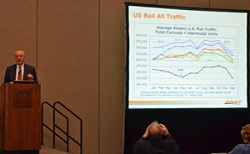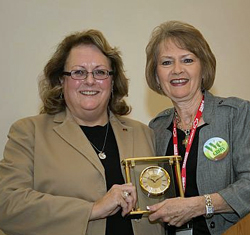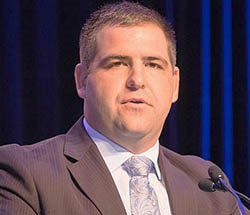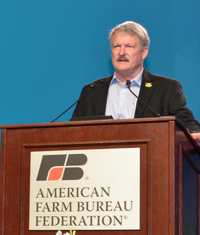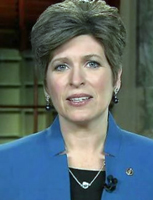 A freshman Senator from Red Oak, Iowa brought the Republican response to the president’s State of the Union address last night home to the farm.
A freshman Senator from Red Oak, Iowa brought the Republican response to the president’s State of the Union address last night home to the farm.
“As a young girl, I plowed the fields of our family farm,” said Sen. Joni Ernst (R-IA) during her moment to represent the new Republican majority in the Senate. “We were raised to live simply, not to waste.”
Both the president and the GOP hit on many of the same themes, including trade expansion. “We should level the playing field,” said Obama. “That’s why I’m asking both parties to give me trade promotion authority to protect American workers, with strong new trade deals from Asia to Europe that aren’t just free, but are also fair.”
“Let’s tear down trade barriers in places like Europe and the Pacific,” said Ernst. “Let’s sell more of what we make and grow in America over there so we can boost manufacturing, wages and jobs right here, at home.”
“We are encouraged by Senator Ernst’s call to work together and tear down trade barriers,” said National Corn Growers Association president Chip Bowling. “Couple TPA with normalized relations with Cuba, and farmers and consumers – both here and abroad – will benefit.”
American Farm Bureau president Bob Stallman was also encouraged by the president’s strong support for TPA and expanding trade, particularly with Cuba. “Congress must pass bi-partisan TPA legislation to strengthen U.S. negotiating positions in future trade agreements,” said Stallman. “We strongly support President Obama’s efforts to normalize trade and other relations with Cuba.”
“Soybeans are the nation’s leading farm export, and it’s critically important that Congress pass and the President sign a completed TPA package that will lay the groundwork for robust and comprehensive trade agreements,” said American Soybean Association president Wade Cowan of Texas.
On the other hand, National Farmers Union (NFU) President Roger Johnson supports President Obama on reopening trade with Cuba, but opposes massive free trade agreements being considered with Asia and Europe. “Free trade agreements are not only exporting American jobs, they are contributing to an increasing trade deficit that has become a major drag on the economy,” he said. “The US government needs to clearly direct our trade negotiators to conclude trade agreements that will erase our trade deficit and lead to more balanced trade in the future.”
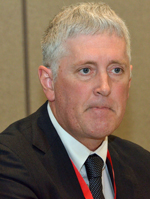 The bumper corn crop this year means lower prices for the grain, but feed demand will continue to be strong… while demand to turn grains into biofuels will stagnate. That’s the mixed bag of information attendees of the American Farm Bureau Federation’s 96th Annual Convention and IDEAg Trade Show heard from Patrick Westhoff, director of the Food and Agricultural Policy Research Institute, updating them on his views of the 2014/15 marketing year.
The bumper corn crop this year means lower prices for the grain, but feed demand will continue to be strong… while demand to turn grains into biofuels will stagnate. That’s the mixed bag of information attendees of the American Farm Bureau Federation’s 96th Annual Convention and IDEAg Trade Show heard from Patrick Westhoff, director of the Food and Agricultural Policy Research Institute, updating them on his views of the 2014/15 marketing year.
